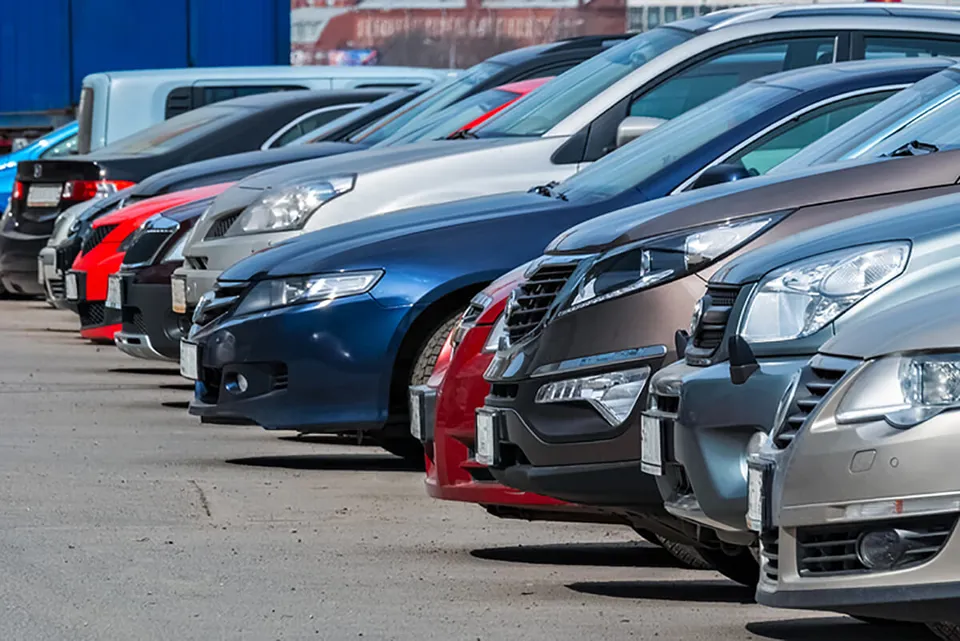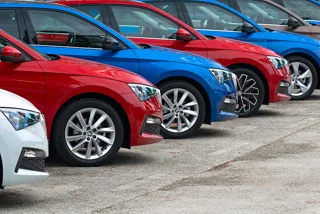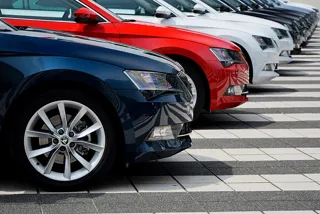Fleets are being warned to be extra vigilant about the condition and legality of private vehicles being driven for work – the so-called grey fleet – given the cost-of-living crisis.
Inflation, currently running at 9% and expected to hit 11% by the end of the year, will leave some drivers facing tough choices when it comes to maintaining their vehicle.
New data, based on hundreds of thousands of ‘spot’ checks carried out by Total Motion on company cars, vans and grey fleet vehicles, over the past 14 years, suggests that grey fleet work-related road risk is already on the increase.
The proportion of grey fleet vehicles with illegal tyres – less than 1.6mm across the central three-quarters of the tyre – has more than doubled year-on-year.
One-in-15 grey fleet cars (6.4%) was found to have illegal tyres based on a sample of 3,000-plus vehicles, compared with 3.1% the previous year.
Just 1.6% of the 6,000-plus company cars checked had illegal tyres.
One-in-14 (6.8%) of the grey fleet vehicles checked by the fleet management company also had an incomplete service history or it did not meet manufacturer standards – up by more than half on the 4.2% reported in 2020.
Just 1.7% of company cars checked had the same service history issues.
Grey fleet cars also had a failure rate 10 times higher than company cars for defective lights, four times higher for defective brakes and twice as high for an invalid MOT.
Total Motion data also suggested that almost one-in-15 grey fleet cars (6.7%) did not have the correct insurance cover, marginally up on the 6% reported in 2020.
Total Motion director, Simon Hill, told Fleet News: “There is absolutely no doubt that people are going to cut corners and they’re going to cut corners where it’s not visible.
“Tyres and maintenance are the first thing they’re going to avoid, because you can’t not put fuel in your car. They will just ignore the things they can get away with.
“If 5% of the vehicles are illegal now, it will be 10% in a year’s time.”
ROAD RISK RESPONSIBILITIES
Fleets were issued with updated guidance on work-related road risk just last year to clear up confusion over where responsibility for legal compliance lies when employees use personal vehicles as part of their job.
The Health and Safety Executive (HSE), working in partnership with the Department for Transport (DfT), said the move was a result of the growing gig economy and an increasing grey fleet.
The HSE says all drivers and riders have an individual responsibility for their driving behaviour under road traffics laws.
However, it stressed that when driving for work, the organisation they work for has legal responsibility for their employees’ health and safety.
Every week there are around 200 deaths and serious injuries involving people using the road for work.
Paul Hollick, chair of the Association of Fleet Professionals (AFP), says that, with some drivers facing hardship, fleets need to be vigilant.
“Some drivers will choose not to service their vehicle so regularly, particularly with some of these vehicles doing fewer miles now as well,” he said.
“They’ll probably be thinking what’s the point in taking it to the garage if I’m hearing a little knock and it’s definitely something fleets need to be mindful about.”
PRESSURE ON PERSONAL FINANCE
Household incomes face further pressure after the Bank of England (BoE) increased interest rates from 1% to 1.25%, pushing them to the highest level in 13 years.
The bank said rising energy prices were expected to drive living costs even higher in October.
Capital Economics speculates that the bank could eventually have to raise interest rates to 3%.
Minutes from the BoE’s meeting also reveal that it expects the UK economy will shrink by 0.3% in the April-to-June period.
The bank did not update its outlook for the July-to-September quarter, but it has said previously that it expects the economy to grow during this period. If it does, then the UK would avoid a recession this year.
Recession is defined as the economy shrinking for two consecutive quarters. However, the BoE has also said previously that it expects the economy to shrink in the final three months of this year, during which the price cap on household energy bills is expected to be increased from £1,971 per year to about £2,800, lifting the increase in the cost of living to “slightly above” 11% in October, the bank said.
GREY FLEET MANAGEMENT
Steve Openshaw, Eric Wright Group fleet manager, told Fleet News how pressure on personal finances, and its potential impact on the grey fleet, was definitely on his radar.
He has 119 grey fleet cars where employees are receiving a cash allowance, along with a number of casual drivers who use their own car for business purposes.
“You need to have the right rules and regulations in place to manage your grey fleet,” Openshaw told a seminar at last week’s Company Car in Action (CCIA).
“It’s quite simple, you treat them exactly the same as you would a company car.”
Openshaw is reviewing the group’s grey fleet policies in August and says he will make changes to manage any safety and environmental concerns.
He also expects to carry out more spot checks, with vehicles randomly sampled to be inspected every six months, to ensure the squeeze on personal finances does not lead to any corners being cut when maintaining vehicles.
“We can manage any impact on the vehicles (from the cost-of-living crisis) with the procedures we have in place,” he said. “But we’re very aware of the risks from the current economic climate.”
GREY FLEET REDUCTION
The decarbonisation agenda could help drive down grey fleet numbers – estimated by the British Vehicle Rental and Leasing Association (BVRLA) to be some 14 million vehicles – with employers increasingly turning to electric vehicle (EV) salary sacrifice schemes.
While cash-allowance drivers have been returning to company car schemes, because of favourable benefit-in-kind (BIK) tax rates for EVs, salary sacrifice has enabled employers to offer the same benefit to many more staff.
Mike Coulton, fleet product and policy manager at Volkswagen Financial Services Fleet, said: “The grey fleet can be a huge contributor to emissions. Luckily for businesses, they’re also one of the easiest things to change to reduce emission levels.
“Offering EVs or ULEVs (ultra-low emission vehicles) through salary sacrifice to employees, who may not qualify for a company car, but who are creating emissions by driving to the workplace, can be a quick win for businesses looking to tackle their carbon footprint.”
The Urban Mobility Partnership – a coalition of transport providers, including daily rental firm Enterprise and Stagecoach – is calling on businesses to put grey fleet reduction at the heart of corporate travel practices.
It has launched a policy paper outlining a series of recommendations which, it says, can incentivise changes within employee business travel.
These include calling for grey fleet reduction to be a key part of all local authorities and combined authorities’ clean air and transport plans.
It also wants the requirement for employees to have access to a private vehicle to be removed from all employee contracts, with employers instead assessing grey fleet alternatives and working with local public transport providers, daily rental, car club and active travel providers to make alternative modes of travel more accessible.
INCENTIVISING SUSTAINABLE TRAVEL
Furthermore, the policy paper is calling for the tax system to incentivise a move away from grey fleet, such as tax-free mobility credits to be used on sustainable modes of travel.
It also wants rules around BIK to be updated to allow for sustainable travel innovation, and Government departments to provide guidance to public sector bodies and local authorities on how to provide alternative transport methods to cut costs and reduce environmental impact.
Steve Stewart, founding member of the Urban Mobility Partnership, said: “As we look to recover from the pandemic and with many people returning to the office in some form, we want to ensure that sustainability and decarbonisation are at the forefront of business travel and commuting practices.
“We are excited to launch our policy paper, which calls for an urgent examination of the national tax system around business travel and offers practical guidance on how to promote alternative ways of commuting to the private car.”
He concluded: “There’s a real opportunity for businesses, local and national Government to work together to achieve their decarbonisation plans, support economic recovery, and to move towards a sustainable, multimodal transport future.”
Simon Hill, director at Total Motion explains why vehicles require regular safety checks whoever the owner is. Read more here.






















Login to comment
Comments
No comments have been made yet.